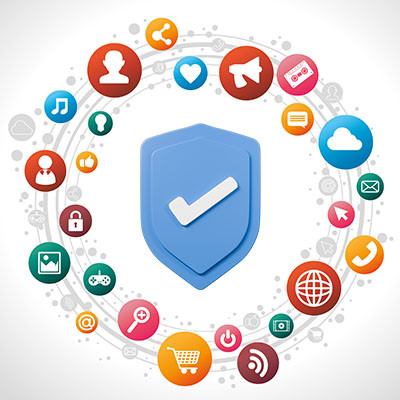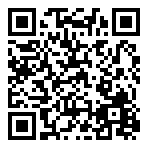We Define IT Consulting
Staying Safe on Social Media in 2024
You can do everything in your power to secure your social media accounts and lock down your privacy settings. Still, at the end of the day, social media users expose themselves to a torrent of information and content every time they log on. As a civilization, we’ve never really had something like this before. These platforms curate content that the user wants to see to keep the user coming back and staying longer. It’s inherently designed to be enticing and addicting, which is dangerous for certain individuals.
Then, there are scams and an endless stream of grifts that pose a wide range of additional problems for users.
Let’s talk about ways you and those you care about can be safer on social media.
Social Media is Revolutionary, But Also Dangerous
Social networks like Facebook, Instagram, and TikTok are massively popular platforms. They bring hundreds of millions or even billions of people together, have created entire industries and spawned careers, and given countless individuals and organizations platforms to be seen and heard. They’ve also amassed billions or even trillions of dollars, bottlenecked the way creative entities broadcast on the Internet, and become a massive goldmine for scammers, grifters, and cybercriminals.
It makes sense; if over 3 billion people log onto Facebook regularly and spend an average of 2 hours and 24 minutes each day scrolling through posts, and I had diet pills made out of sugar and vinegar to sell, that’s where I’d want to be, too. A pickpocket would have more opportunity to steal a wallet in the crowded congestion of Times Square as opposed to a scenic Appalachian trail.
Be Wary of Scams on Social Media
We live in a world where our technology is almost constantly trying to scam us—or rather, scammers are constantly trying to use as many technological avenues to scam us as they can. Your phone rings and the caller is flagged as a suspected spam caller. You get texts from random people claiming to be beautiful models or trying to get you to invest in cryptocurrency. You get fake emails that appear to come from legitimate businesses only to trick you into sharing your login information. The average American experiences about one scam every waking hour, whether it be online, on the phone, out in public, or on television.
Social media scams are particularly tricky because often, the scammer can pose as someone you know.
For instance, if your friend Steve has a weak Facebook password and their account is compromised, the scammer could start messaging you as Steve to try to trick you into handing over sensitive information or convince you to send them money.
There are many different types of social media scams to look out for. Here are some of the more common ones:
Celebrity/Famous Person Scams - Sometimes, the scammer will pretend to be a famous person or entity to try to trick you. Believe it or not, Robert Downey Jr or Taylor Swift probably don’t need you to send them $500. Bill Gates won’t be sharing his massive wealth with you, either, no matter how many times you Like or Share the post about it.
Information Gathering Scams - Quizzes and polls will often try to trick you into sharing some sensitive information about yourself. Famously, these scams would ask you the same kind of questions that your bank does to secure your bank account, such as the name of your first dog, the make and model of your first car, your childhood best friend, etc.
Impersonation Scams - It’s easy for a scammer to create a social media account that looks just like another person, including one you personally know. The profile will have all their information, picture, and full name. They can even send messages and sound just like your friend. If you have even the slightest suspicion that your friend is acting strange on social media, call them in real life to check in on them and verify their actions.
Romance Scams - Scammers will tell you all kinds of lies to steal your heart and your money. They often pose as beautiful young men or women with some sort of tragic problem they need help with. They are kind and flirt with you to win you over and make you feel special, but at the end of the day, their goal is to trick you. Sometimes, they’ll even send their victims a check for a future vacation or some other nice gesture, only to suddenly need it back before the bank has time to tell you that it was fraudulent.
Cryptocurrency and Investment Scams - Often, scammers pose as investment gurus to try to “teach” you how to make a ton of money by investing in stocks or cryptocurrency. Unfortunately, most of the time, the only ones making any money from these tricks are the scammers.
Work from Home and Easy Money Scams - Whenever an offer sounds too good to be true, it usually is. Scammers will post claims that they make thousands of dollars a week working from home. Usually, this sends the victim on a wild goose chase that leads to them downloading malware or spending money to join an illegal pyramid scheme.
Understanding Misinformation
Hoo boy, this is a complex and surprisingly sensitive topic.
Not to irritate any old wounds, but remember a time not too long ago when some folks were claiming that wearing cloth masks to prevent the spread of a global respiratory illness was some sort of conspiracy, and that there were microchips and horse dewormer involved…?
Misinformation is extremely common on social media. It can be silly, or straight up annoying, or it can be frustratingly dangerous.
This isn’t anything new, necessarily. Snake-oil salesmen have been a thing for over a century, and daytime television had its fair share of popular grifters who would give misleading diet or medical advice. This is only exacerbated today with AI-generated content.
Misinformation gets amplified on social media, however, because of a concept called filter bubbles. The idea is that you and the people you connect and communicate with online often share similar ideologies. Social media inherently isolates people into these bubbles because it tends to keep people on social media more often. The more Facebook (or any social network) feeds you the kinds of content you like, the more often you’ll come back for more, and the longer you will stay.
This leads to things like social media addiction, but it also has a snowball effect on misinformation, especially when someone can take advantage of a group of people to profit off of misinformation.
It’s not just political, either. If you want to lose weight, and follow low-calorie recipe groups, there’s a pretty good chance that someone selling weight-loss supplements would love to fill up your feed with their products and services.
Your social media habits tell a very deep, complex story, and social networking sites are very good at breaking that down into the things that keep you engaged while online. If a certain political topic fires you up, they will try to feed you more of that content because it keeps you online. If the social network believes you just bought a new home, it can dish out ads and content towards new home owners, for better or for worse.
Misinformation tends to have a goal, but it isn’t always clear. If I have an audience of people who all want to lose weight, and I can somehow convince them to buy and eat my “diet” ice cream that won’t help them lose weight, then I can create a customer who will never stop buying my product. I can reinforce this with plenty of content and marketing to continue to hammer the idea into their head that my delicious “diet” ice cream will eventually help them lose weight, when in fact, it’s just normal, calorie-dense ice cream.
Other times, this type of content is really just to get you to notice it and waste your time with it.
This can be applied to virtually any topic and any interest you can think of, and it works especially well when it comes to strong emotions like fear, loneliness, and frustration. It’s a self-perpetuating system and good, intelligent people get stuck in it all the time.
Avoiding Misinformation
The best advice for this is to take everything with a grain of salt. For medical advice, for example, always talk to your doctor, and don’t hesitate to do a few Google searches outside of social media when things don’t seem right.
One of the biggest problems with misinformation is that it often claims the correct information is the lie, and sometimes a large community of people could propagate this misinformation. The best thing you can do is take your time to understand a topic and avoid making life-changing decisions based on something you’ve seen on social media.
Think Before You Click
As always, remember that there is always potential risk from clicking on ads, links in messages, and posts leading to unfamiliar websites. Always be skeptical of unsolicited messages or friend requests, and verify the legitimacy of something before you click on a link or provide personal information.
Social media has proven to be both a huge resource of great content with a lot of potential, and a great way to keep in touch with friends and family, a great place to network and find people with similar interests as you, and a place for businesses to grow and get more exposure online. That said, like any popular place on the Internet, the bad guys are going to benefit from social media as well.
We hope this guide provided some good insights, and if you want to discuss securing your business, give the cybersecurity experts at We Define IT a call at 888-234-WDIT (9348) .
Don't have an Account Yet?
You have to register to leave a comment, register here.


Comments